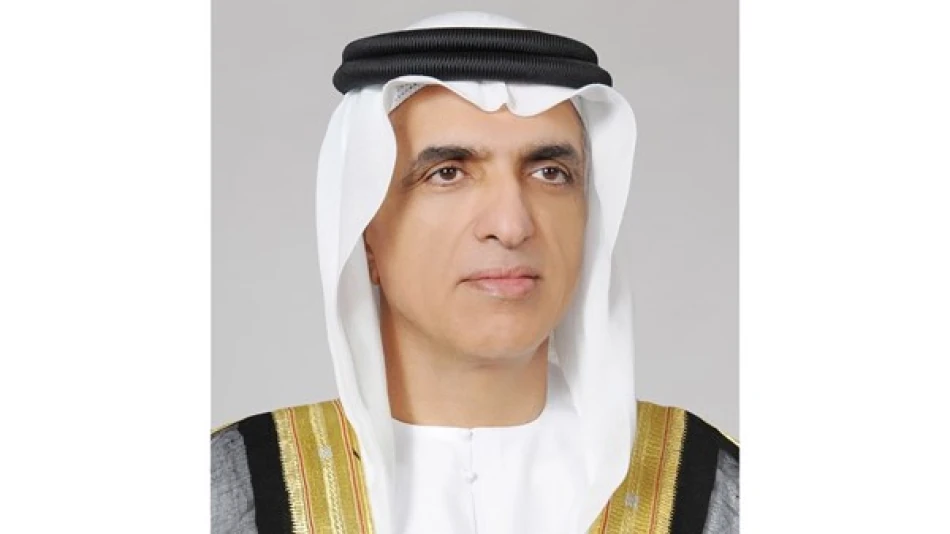
Ras Al Khaimah Hosts the 2nd Investment and Business Summit Under the Patronage of Saud bin Saqr
Ras Al Khaimah Doubles Down on Investment Diversification Strategy with Second Business Summit
The UAE's northernmost emirate is positioning itself as a serious alternative to Dubai and Abu Dhabi's dominance in attracting foreign investment, with Ras Al Khaimah set to host its second annual Investment and Business Summit on November 19-20. The event signals the emirate's calculated push to leverage its industrial strengths and strategic location while the broader Gulf region faces increased competition for international capital.
Strategic Timing Amid Regional Investment Competition
Under the patronage of Sheikh Saud bin Saqr Al Qasimi, Ruler of Ras Al Khaimah, the summit comes at a critical juncture for the UAE's economic diversification efforts. While Dubai continues to attract fintech and trading firms, and Abu Dhabi focuses on sovereign wealth and energy transitions, Ras Al Khaimah is carving out its niche in manufacturing, renewable energy, real estate, and tourism.
The timing reflects broader regional dynamics where secondary cities across the Gulf—from Saudi Arabia's NEOM to Qatar's industrial zones—are competing for investment dollars that once flowed primarily to established financial centers.
The Numbers Behind the Ambition
Ras Al Khaimah's investment pitch rests on solid infrastructure foundations. The emirate now hosts over 15,000 active companies and operates advanced free zones, while Saqr Port handles more than 100 million tons of cargo annually. These figures position it as a legitimate industrial hub rather than merely an alternative to more expensive emirates.
Mohammed Musabih Al Nuaimi, Chairman of Ras Al Khaimah Chamber of Commerce, emphasized that the summit transcends simple showcasing—it's designed as "a platform for dialogue, partnership, and innovation" that directly channels into new project development.
Corporate Backing Signals Serious Intent
The confirmed participation of major regional players including BNW Developments, Marjan, Federal Authority for Water and Electricity, IFM, Raknor, Union Properties, and Atzoro as sponsors and partners indicates genuine corporate interest rather than ceremonial attendance.
This corporate engagement mirrors successful models seen in Singapore's early development phases, where government-backed summits created lasting business networks that outlived the events themselves.
Market Implications for Investors
For international investors, Ras Al Khaimah's focused approach presents both opportunities and considerations. The emirate's emphasis on manufacturing and renewable energy aligns with global supply chain diversification trends and ESG investment priorities. However, success will depend on execution of promised infrastructure projects and maintaining cost advantages over established UAE business centers.
The summit's sector-specific focus sessions and strategic discussions suggest a maturing approach to investment attraction—moving beyond generic business-friendly messaging toward targeted industry development.
Competitive Positioning in the UAE Landscape
Ras Al Khaimah's strategy appears to acknowledge it cannot compete directly with Dubai's financial services ecosystem or Abu Dhabi's energy sector dominance. Instead, it's positioning itself as the UAE's industrial and logistics hub—a role that could prove increasingly valuable as global manufacturers seek alternatives to traditional Asian production centers.
The emirate's focus on tourism alongside industrial development echoes successful models from Malaysia's Johor state and Thailand's Eastern Economic Corridor, where mixed-use development strategies have attracted diverse investment flows.
As regional competition for foreign investment intensifies, Ras Al Khaimah's success in converting summit participation into actual project commitments will test whether smaller emirates can effectively challenge established business centers through focused sectoral strategies and competitive positioning.
Most Viewed News

 Layla Al Mansoori
Layla Al Mansoori






